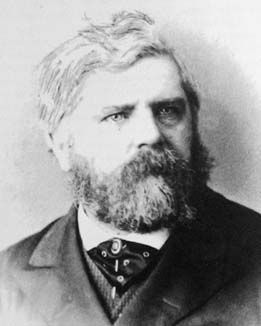
Charles Watkins Merrifield
 المؤلف:
Biography by Adrian Rice
المؤلف:
Biography by Adrian Rice
 المصدر:
Dictionary of National Biography
المصدر:
Dictionary of National Biography
 الجزء والصفحة:
...
الجزء والصفحة:
...
 12-11-2016
12-11-2016
 780
780
Born: 20 October 1827 in Southwark, London, England
Died: 1 January 1884 in Hove, Sussex, England

Charles Merrifield's mother was Mary Philadelphia Watkins who was a writer on art and literature. Like her son, she merits an entry in the Dictionary of National Biography. Charles's father was John Merrifield who was originally from Tavistock, Devon, but at the time that Charles was born was practising as a barrister in London. Charles was well educated and in 1847 he began working at the Department of Education. It would be appropriate at this point to explain the background to the setting up of the Department of Education by the government.
England did not introduce state organisation of education as early as many countries. Education was considered an entirely private business at the start of the 19th century. At that time however moves began to be made to provide a national education system and the Church of England and other churches were thought to be the most natural bodies to come together to undertake the organisation. The various churches could not agree to set up a single body, so various bodies were set up by the Church of England, the Roman Catholic Church, and others. Soon it was realised that these bodies were not up to the task, and in 1833 the government helped out the various bodies giving them each a small grant. In 1839 a committee of the Privy Council was set up to handle these state grants. The government gave a grant each year and the committee also took on the task of inspecting the schools. Now that the state was becoming more involved in school education the government set up an education department in Whitehall. It was in this department that Merrifield began working in 1847, and the Department went on to become the Ministry of Education.
Having trained as a lawyer he entered the legal profession in January 1851 but he never practised law. He became an Examiner at the Education Department and on 12 October 1858 he married Elizabeth Ellen Nicholls from St Colomb in Cornwall. Sadly Elizabeth died when they had been married for ten years. On 4 June 1863 was elected to the Royal Society. This was on the strength of some excellent mathematical papers on the calculation of elliptic functions, the first of which was The geometry of the elliptic equation which he published in 1858.
He was appointed secretary of the Institution of Naval Architects in 1864, and continued to act in that capacity for the next eleven years. He moved to the Royal School of Naval Architecture at South Kensington in 1867. At first he was vice-principal but quickly appointed principal of the School, remaining in that position until 1873. His interest in naval matters was reflected in his research on sea waves which generated so much interest in Italy that he translated them into Italian himself and published them in Revista Marittima.
Although none of Merrifield's papers were of major importance, nevertheless he wrote over 100 papers which he published in the leading journals. As an expert on tables and interpolation he served on the royal commission which was set up to evaluate Babbage's analytic engine. He was also active in promoting improvements in the teaching of geometry being a member of the Association for the Improvement of Geometrical Teaching. He was editor of a series of scientific textbooks and he contributed to the series the volume Technical Arithmetic and Mensuration (1870). He also took an active part in the British Association for the Advancement of Science, being president of one the sections at Brighton in 1875 and again in the following year at Glasgow.
Finally we should mention that Merrifield played a major role in the London Mathematical Society, being vice-president during 1876-8 and then president during 1878-80. After completing his term as president he became treasurer of the Society in November 1880 but ill health forced him to resign this post. He suffered from a minor stroke in April 1882 and resigned as treasurer in December of that year despite making a reasonable recovery. He also resigned his position as examiner at the Department of Education, having held that post throughout his working life. A second more severe stroke in October 1883 led to his death.
- Biography by Adrian Rice, in Dictionary of National Biography (Oxford, 2004).
Articles:
- Charles Watkins Merrifield, Proc. Roy. Soc. London 36 (1883-84), i-iii.
- Charles Watkins Merrifield, Proc. London Math. Soc. 15 (1883-4), 281-284.
- Charles Watkins Merrifield, Nature 29 (1883-4), 270.
- Obituary : Charles Watkins Merrifield, The Times (4 Jan 1884).
- Obituary : Charles Watkins Merrifield, The Athenaeum (5 Jan 1884).
 الاكثر قراءة في 1820to1829
الاكثر قراءة في 1820to1829
 اخر الاخبار
اخر الاخبار
اخبار العتبة العباسية المقدسة


